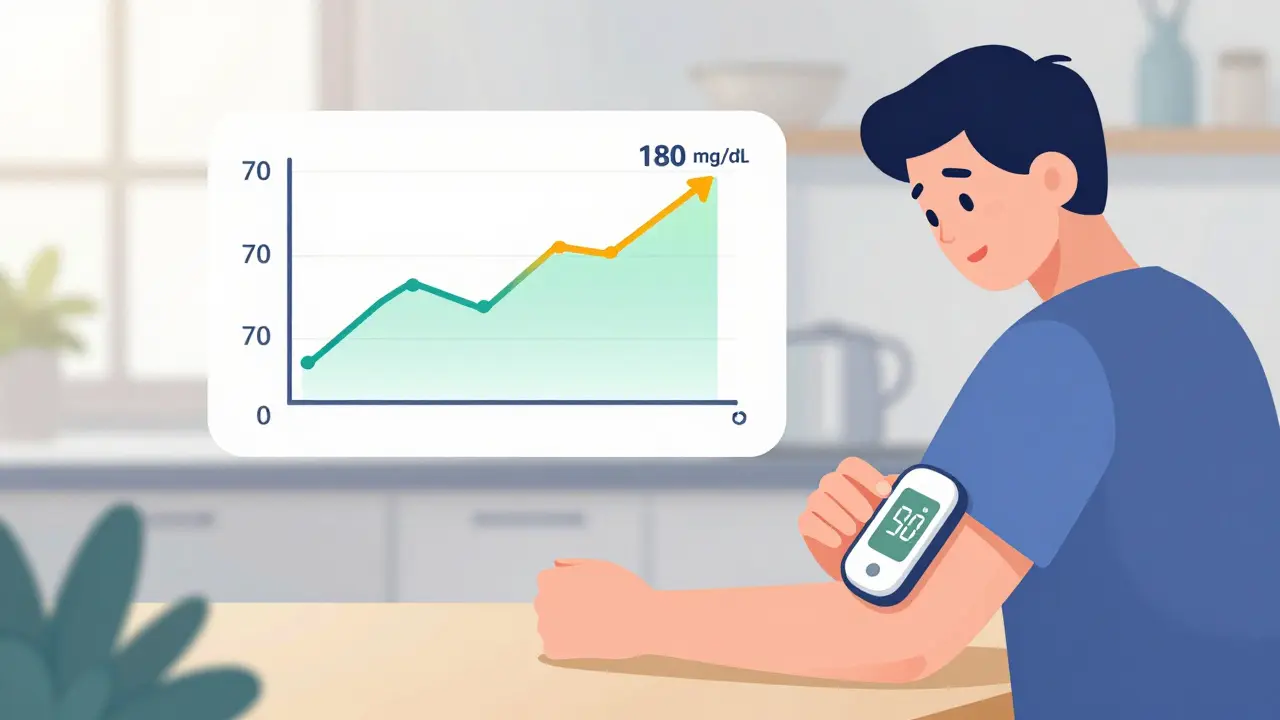Diabetes Management: Taking Charge of Your Health
Managing diabetes can feel tricky, but knowing the basics helps a ton. Whether you have Type 1 or Type 2 diabetes, controlling your blood sugar is the key to feeling better and avoiding complications. The good news? Simple changes in what you eat, how active you are, and how you handle your medications can make a big difference.
First off, keeping an eye on your blood sugar levels is crucial. Regular testing helps you see how foods, exercise, and stress affect your numbers. Don’t wait for symptoms—daily tracking can catch spikes or drops early. If you’re unsure about how often or when to check, your healthcare provider can help set up a plan that fits your lifestyle.
Lets Talk Food: What Works and What Doesn’t
Food is often the biggest puzzle in diabetes care. The goal is balancing carbs, proteins, and fats to avoid sudden blood sugar swings. Carbs do raise blood sugar, but skipping them isn’t the answer. Instead, choose complex carbs like whole grains, veggies, and legumes. They break down slowly, giving your body more steady fuel.
Avoid sugary drinks and processed snacks—they spike blood sugar and add empty calories. Planning meals with regular times helps too—this keeps your body guessing less and your levels steadier. You don’t have to go on a strict diet, but smaller portions and eating less fried or fatty foods can really help.
Medication and Lifestyle: Working Together
If your doctor prescribed medicine, taking it right is super important. Missing doses or stopping meds because you feel fine can cause trouble down the road. Some diabetes meds also work better when combined with a healthy diet and exercise. So, moving your body regularly—like walking, swimming, or cycling—can boost how your meds work.
Stress and sleep are parts we often ignore, but they affect blood sugar too. High stress can raise levels, and poor sleep messes with your body’s ability to use insulin. Finding simple stress-busters—like deep breathing or chatting with friends—can make a real difference.
Lastly, check-in with your healthcare team regularly. Diabetes affects your whole body, so routine checkups, eye exams, and foot care prevent problems before they get serious. Staying informed and proactive keeps you in control, not your diabetes.
Ready to take these tips on board? Small steps build up fast, and you’ll feel more confident managing your diabetes every day.

Time in Range: How CGM Metrics Help You Manage Diabetes Daily
- Jan, 15 2026
- 9
Time in Range (TIR) using CGM metrics gives you real-time insight into daily glucose patterns, helping you avoid dangerous highs and lows beyond what HbA1c can show. Learn how to use TIR to improve diabetes outcomes.

How Medication Controls Type 2 Diabetes: A Complete Guide
- Sep, 24 2025
- 20
Explore how different medications work, how to choose the right one, and how they fit into a full Type2 diabetes management plan.

Top 7 Natural and Pharmaceutical Alternatives to Metformin in 2024
- Sep, 30 2024
- 11
Metformin remains a popular choice for managing diabetes, but several alternatives are now available, each with unique benefits and challenges. From pharmaceutical options like Ozempic and Rybelsus, to natural compounds like Berberine, these alternatives offer diverse approaches to diabetes care. Consideration of side effects, form of administration, and additional health benefits is critical in choosing the right treatment. Patients should consult with healthcare professionals to tailor a therapy plan suited to individual needs.
Categories
- Medication Information (113)
- Health and Wellness (52)
- Women's Health (6)
- Support Resources (5)
- Supplements (5)
- Pharmacy Reviews (5)
- Dermatology (4)
- Mental Health (4)
- Nutrition (3)
- Fitness and Wellness (3)
Archives
- February 2026 (12)
- January 2026 (27)
- December 2025 (30)
- November 2025 (24)
- October 2025 (29)
- September 2025 (14)
- August 2025 (2)
- July 2025 (7)
- June 2025 (2)
- May 2025 (3)
- April 2025 (4)
- March 2025 (3)
- online pharmacy
- dietary supplement
- medication safety
- health benefits
- side effects
- generic drugs
- drug interactions
- treatment
- wellness
- optimal health
- diabetes management
- safe medication purchase
- online pharmacy Australia
- brand name drugs
- authorized generics
- generic medications
- link
- women's health
- dietary supplements
- sleep
